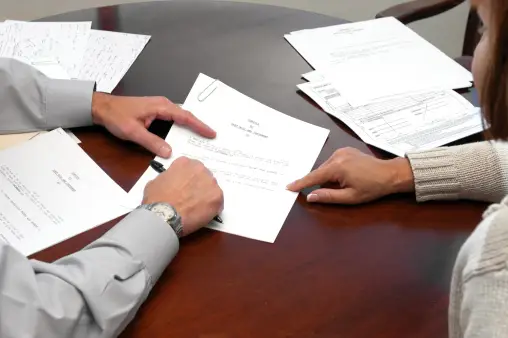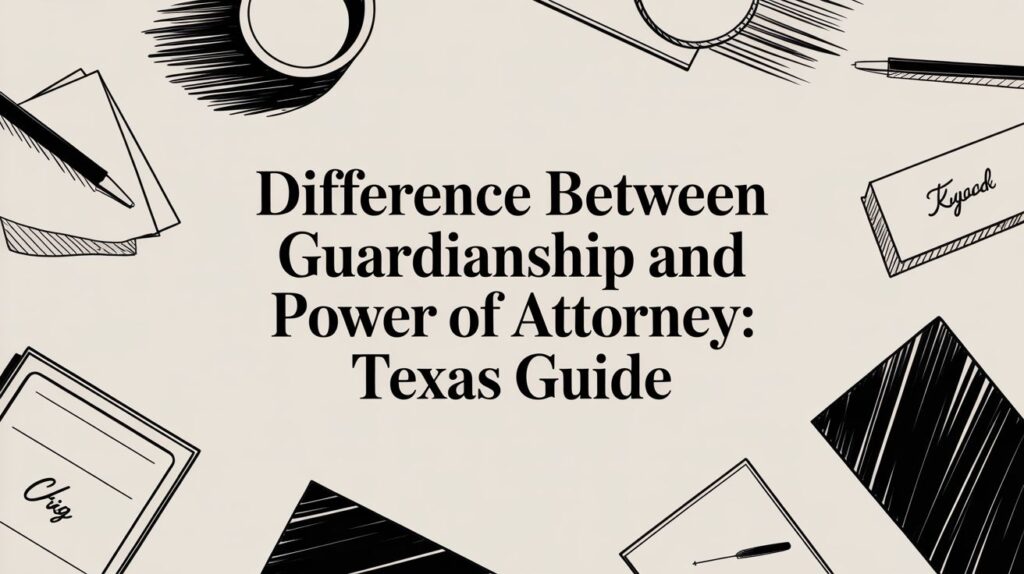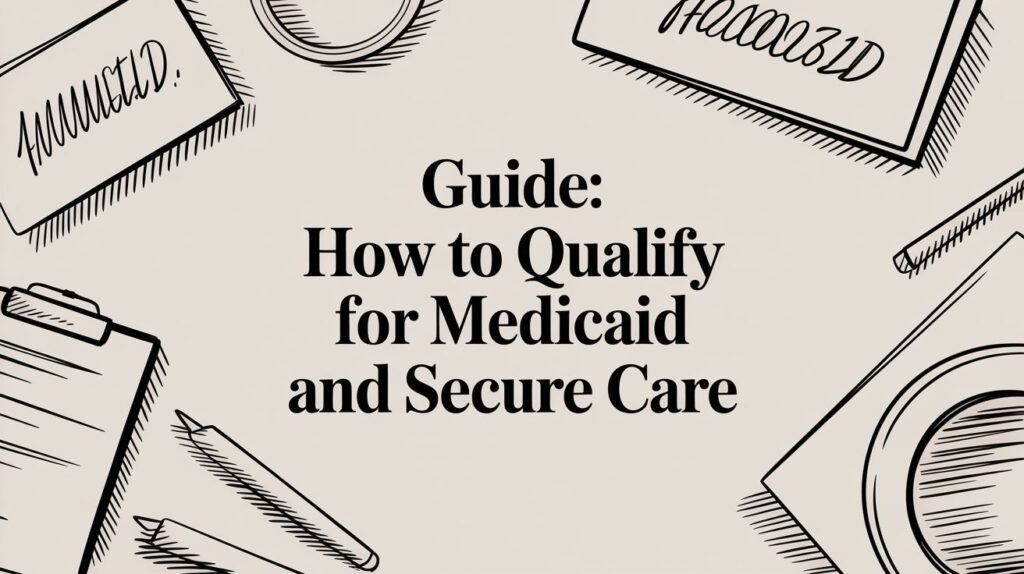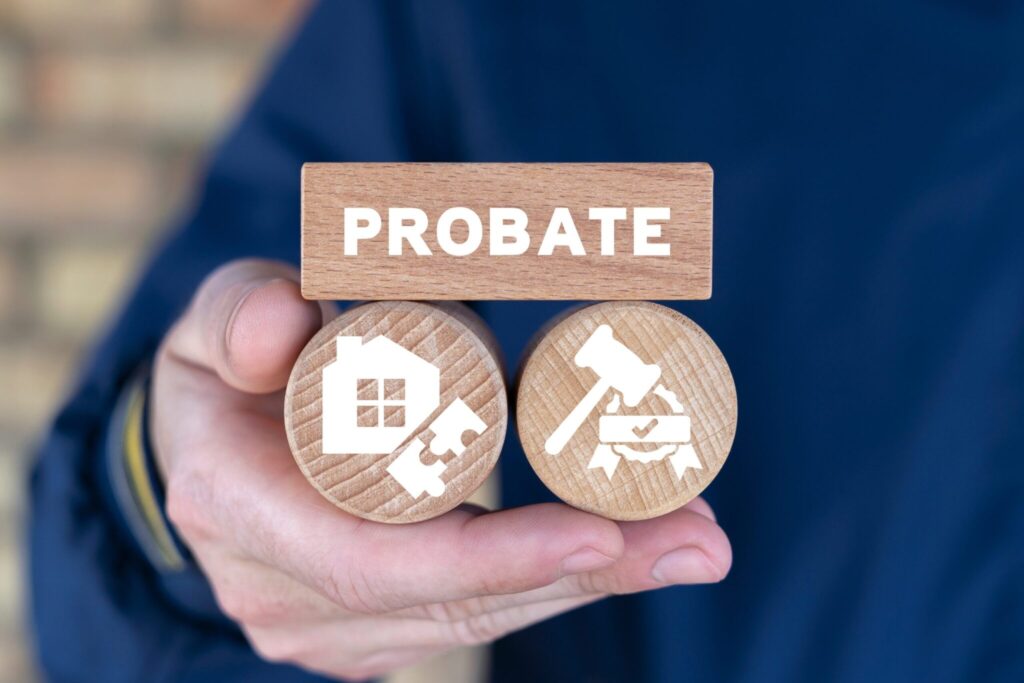Guardianship in Texas is a legal framework established to safeguard and manage the interests and well-being of individuals who cannot make decisions for themselves due to various reasons, including incapacity, disability, or age-related issues. It is a legal process where a court appoints a guardian to act on behalf of such individuals, making decisions that range from personal care to financial matters.
Key Aspects of a Texas Guardianship
Types of Guardianship:
Guardianship in Texas can be categorized into two primary types: guardianship of the person and guardianship of the estate.
- Guardianship of the Person: In this type of guardianship, the appointed guardian is responsible for making decisions related to the personal well-being and care of the individual. This includes choices regarding medical treatment, living arrangements, education, and other aspects of daily life.
- Guardianship of the Estate: Guardianship involves decisions about the individual’s financial matters. The guardian is tasked with managing the individual’s assets, paying bills, handling financial transactions, and ensuring the individual’s financial interests are protected.
Who Requires Guardianship:

Guardianships are typically sought for individuals who cannot make informed decisions. This can include minors, adults with disabilities, or elderly individuals who may have diminished mental capacity. The decision to seek guardianship is often driven by the need to protect the individual’s interests and ensure their well-being.
Temporary Guardianship:
In certain emergency situations, the court may appoint a temporary guardian to make immediate decisions on behalf of the individual. This temporary arrangement is in place until a more permanent guardianship can be established.
The Legal Process:
Initiating this process in Texas involves filing a petition with the appropriate court. This petition must provide evidence of the individual’s incapacity and demonstrate that guardianship is necessary for their best interests. The court reviews the case, may appoint an attorney ad litem to represent the individual’s interests, and, if approved, appoints a suitable guardian.
Guardian’s Responsibilities:
Guardians in Texas are responsible for acting in the best interests of the individual they represent. This includes meeting the individual’s needs, making decisions aligned with their well-being, and safeguarding their rights. The court provides oversight to ensure that guardians fulfill their responsibilities appropriately.
Alternatives to Guardianship:
While guardianship is a necessary legal framework in some cases, it’s essential to consider alternative options when appropriate. These alternatives include powers of attorney, advance healthcare directives and other legal documents that allow individuals to delegate decision-making authority while still retaining some degree of autonomy.
This process in Texas can be a complex and long, and it’s crucial to consult with an experienced attorney specializing in Texas guardianship law to navigate it correctly. The overarching goal of guardianship is to ensure that individuals who cannot make decisions for themselves receive proper care and protection while respecting their rights and dignity.
How To Contest a Guardianship In Texas Probate Court

A probate court is a specialized court within the legal system that deals specifically with matters related to the administration of estates and the distribution of assets after someone has passed away. Its primary function is to oversee the legal process of probate, ensuring that the deceased person’s wishes, as outlined in their will or as dictated by state law in cases without a will, are carried out correctly and that the estate is settled in an organized and lawful manner.
Contesting a guardianship in Texas probate court involves challenging the appointment of a guardian for an individual deemed incapacitated or in need of a guardian’s care. Contesting guardianship is a legal process that should be approached with careful consideration and the assistance of legal counsel. Here are the general steps to contest a guardianship in Texas probate court:
Seek Legal Representation:
Before taking any action, it’s crucial to consult with an attorney who specializes in guardianship and probate matters. An experienced attorney will guide you through the process, explain your rights, and help you build a strong case.
Understanding Grounds for Contest:
Determine the grounds on which you are contesting the guardianship. Common grounds for contesting a guardianship in Texas may include:
- Lack of incapacity: Arguing that the alleged incapacitated person is not, in fact, incapacitated to the extent that they require a guardian.
- Preference for an alternative guardian: If you believe that there is a more suitable guardian available, you can present evidence to support this preference.
- Lack of due process: If you believe that proper legal procedures were not followed during the appointment process, this can be a basis for contesting.
Filing a Motion:

Your attorney will help you prepare and file a motion to contest with the probate court. This motion should clearly outline your objections and the reasons for contesting the guardianship. It’s important to do this promptly after learning about the proceedings.
Notification:
Once the motion is filed, notice of the contest must be provided to all interested parties, including the petitioner, the proposed guardian, and any other relevant individuals or agencies involved in the case.
Discovery and Evidence Gathering:
Both sides may engage in the discovery process, where evidence is exchanged, witnesses are identified, and documents are requested to support their respective cases. Your attorney will assist in gathering evidence to support your contest.
Pre-Trial Conference or Mediation:
Depending on the circumstances, the court may schedule a pre-trial conference or mediation session to attempt to resolve the issues without a formal trial. Your attorney will represent your interests during these proceedings.
Trial:
A trial may be necessary if the dispute cannot be resolved through negotiation or mediation. Both sides present their arguments and evidence during the trial, and witnesses may testify. Your attorney will vigorously present your case in court.
Court Decision:
After considering all evidence and arguments, the probate court will decide. The court may appoint the proposed guardian, choose an alternative guardian, or dismiss the guardianship petition based on your objections.
Appeal, if necessary:
If you are dissatisfied with the court’s decision, you can appeal the ruling to a higher court. Your attorney can advise you on the feasibility of an appeal and guide you through the process.
It’s essential to remember that contesting guardianship is a legal process that requires adherence to specific rules and procedures. Working closely with an attorney specializing in guardianship cases is crucial. This ensures that your objections are properly presented and your rights are protected.








